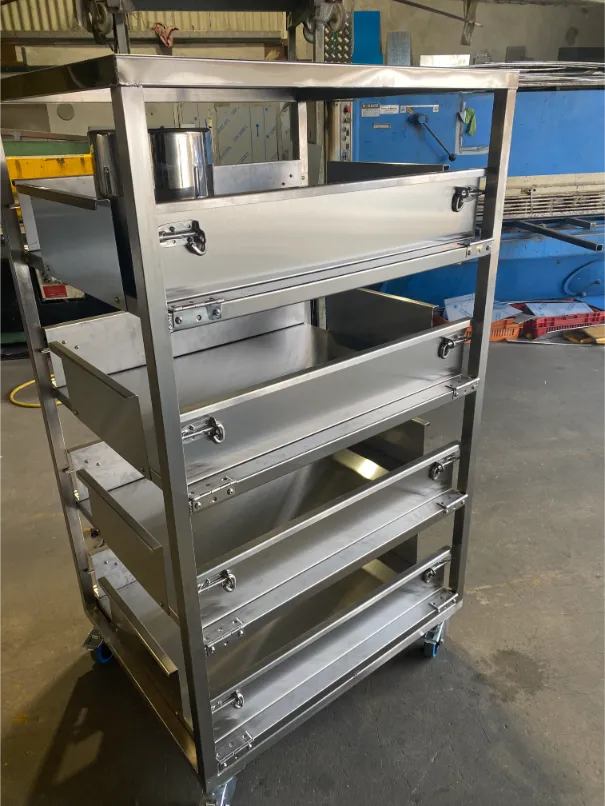
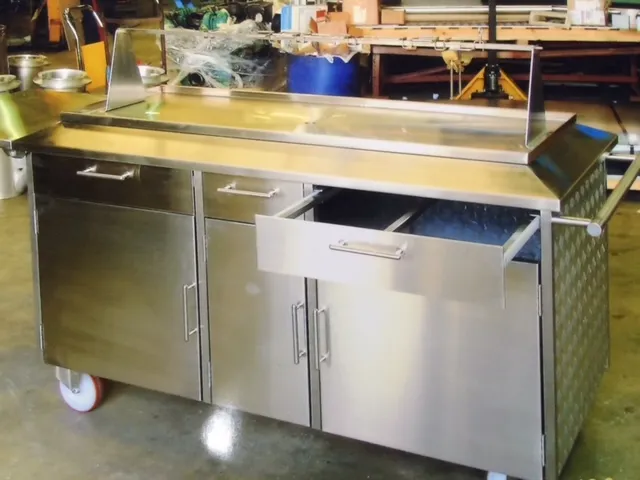
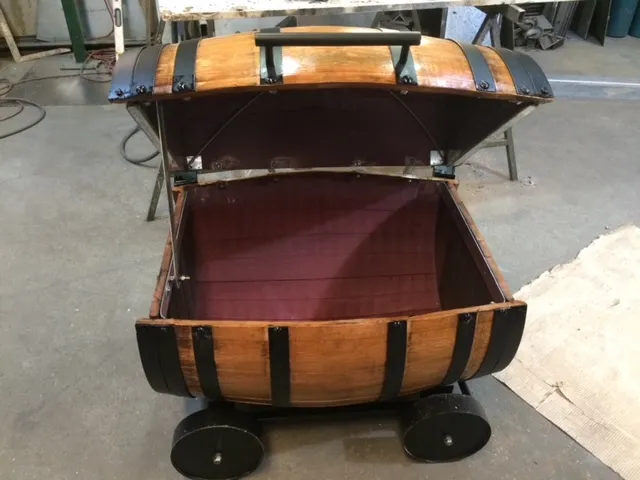
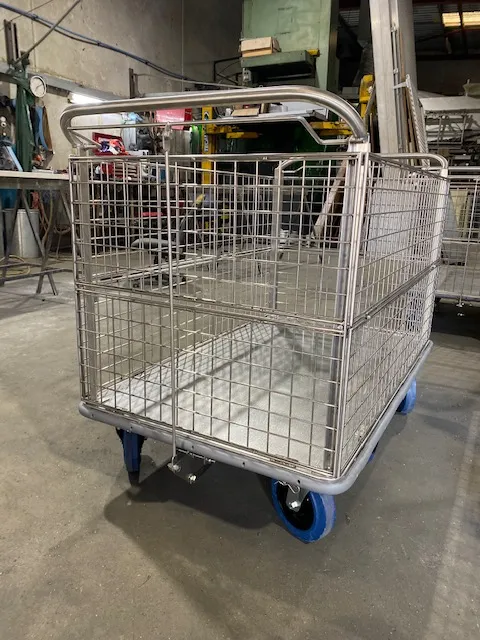
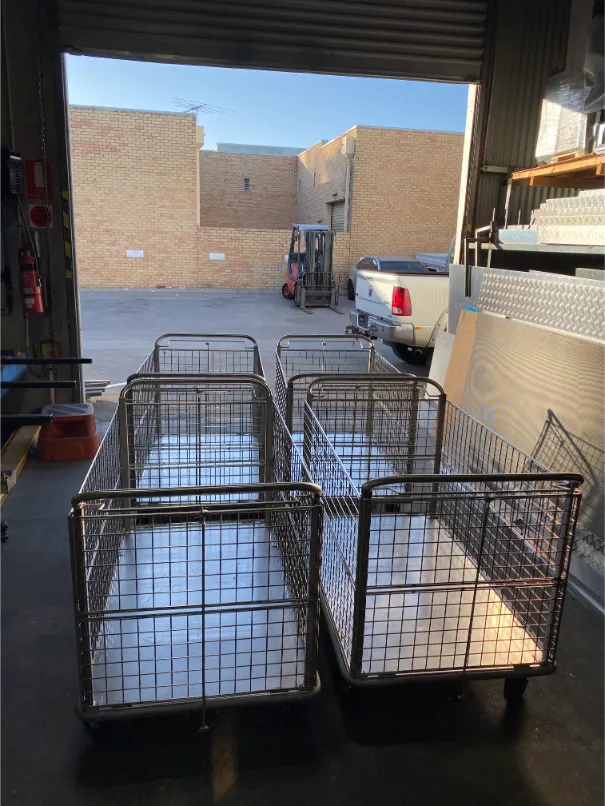
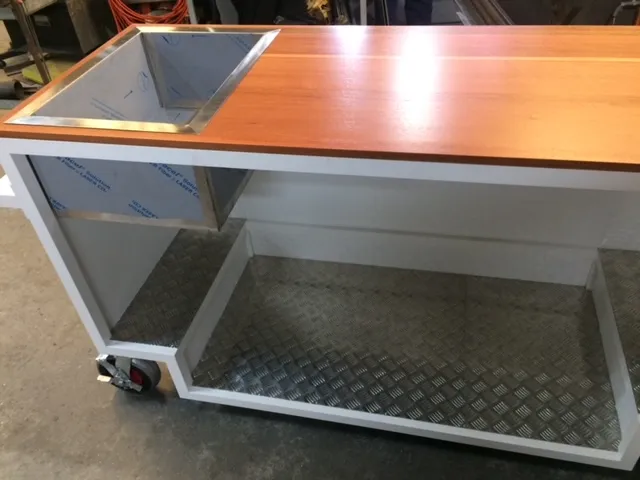
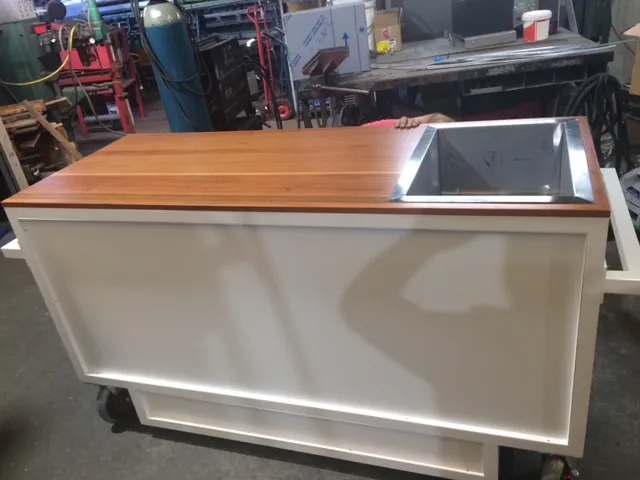
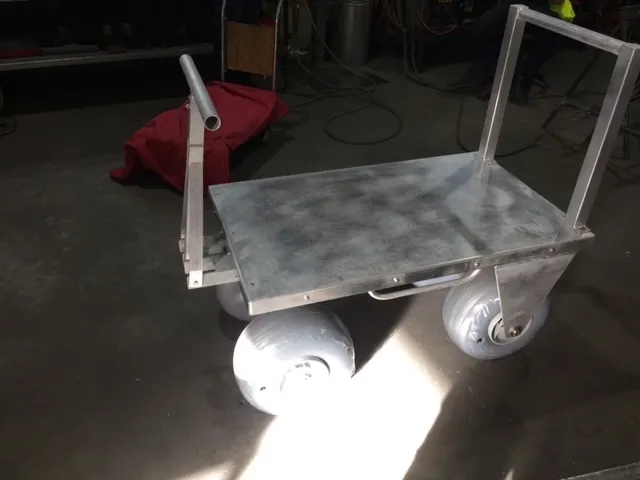
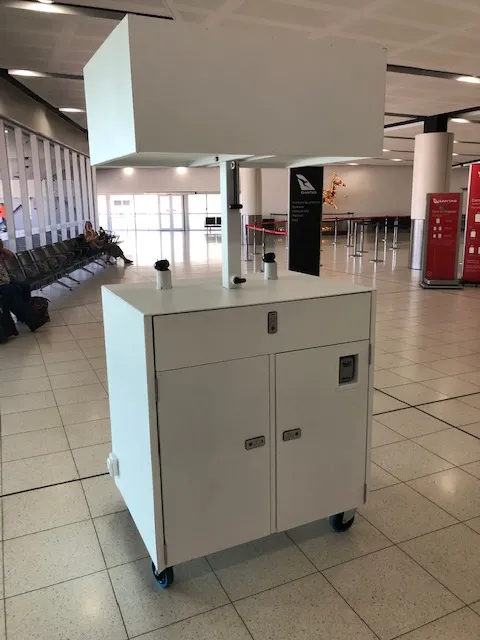
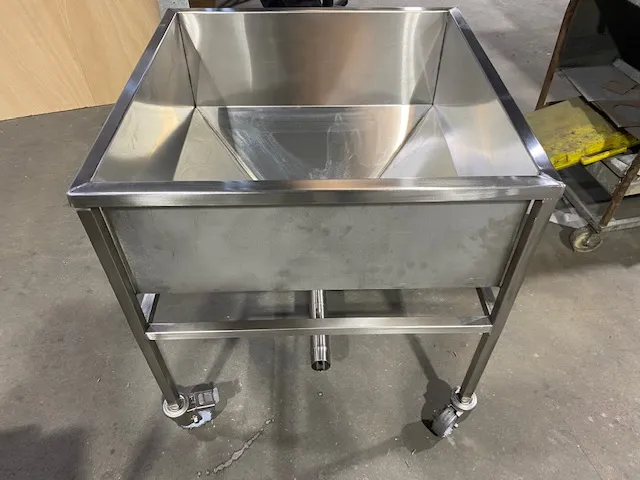
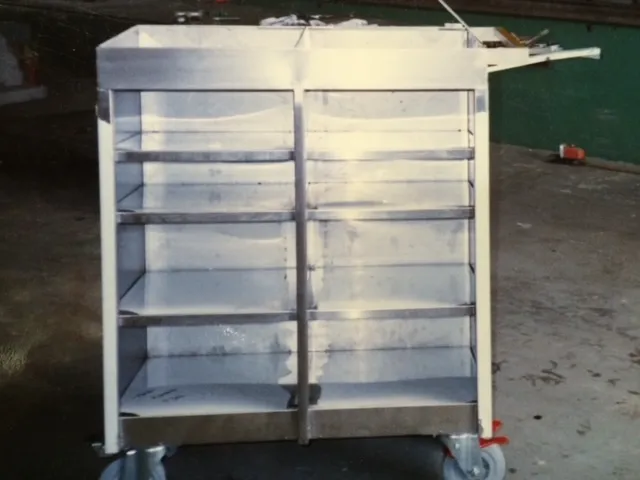
Durability: Stainless steel is a strong and robust material, ensuring the trolley’s longevity and ability to withstand heavy loads and rough handling. It is resistant to dents, scratches, and corrosion, making it suitable for demanding environments.
Hygiene and cleanliness: Stainless steel is non-porous and easy to clean, making it ideal for environments where hygiene is critical, such as hospitals, laboratories, and food processing facilities. It resists bacterial growth and can be sanitised effectively.
Customisation options: Custom-made stainless steel trolleys can be tailored to your specific needs and requirements. You can choose the dimensions, shelf configurations, handle styles, and additional features to optimise the trolley’s functionality and usability.
Versatility: Stainless steel trolleys are versatile and can be used in various industries and applications. They are commonly used in healthcare, hospitality, manufacturing, warehouses, and more. Their flexibility allows for efficient transport of items, equipment, and supplies.
Easy maintenance: Stainless steel trolleys are easy to maintain. They can be cleaned with standard cleaning agents and wiped down to remove dirt, spills, and stains. The material’s smooth surface prevents the accumulation of debris, simplifying upkeep.
Corrosion resistance: Stainless steel is highly resistant to corrosion and rust, making it suitable for both indoor and outdoor use. This feature ensures that the trolley will withstand exposure to moisture, humidity, and different environmental conditions without deteriorating.
Safety and stability: Stainless steel trolleys are designed for stability and safety during transport. They often feature sturdy construction, secure locking mechanisms, and ergonomic handles or grips to enhance user comfort and prevent accidents.
Aesthetics: Stainless steel trolleys have a sleek and modern appearance that can enhance the overall aesthetics of your workspace. They offer a professional and clean look that complements various environments and design styles.
Custom branding: Custom-made stainless steel trolleys can be personalised with your company logo, name, or specific branding elements. This allows for a cohesive and professional look that promotes brand recognition and adds a personalised touch.
Overall, custom-made stainless steel trolleys provide durability, hygiene, customisation options, versatility, easy maintenance, corrosion resistance, safety, aesthetics, and the opportunity for custom branding. These features and benefits make them a popular choice in numerous industries where reliability and functionality are essential.
Custom stainless steel trolleys are vital in food manufacturing, but we often overlook the importance of smart design. Well-thought-out design is crucial to prevent food wastage. Our designs focus on efficient cooling and minimising staff downtime. These trolleys for commercial food manufacturers are tailored to fit various needs in different production facilities, making operations smoother. Examples of tailored features:
Ingredient transport and food preparation: Trolleys are used to transport raw ingredients, such as flour, sugar, spices, and oils, from storage areas to different production stations within the facility. This ensures efficient and organised ingredient management. Trolleys can also be used as mobile workstations for food preparation. They provide a convenient and portable surface for chopping, mixing, and assembling ingredients, allowing for flexibility and optimising workflow.
Cooked food transfer: After cooking or processing, trolleys are used to transport cooked food items, such as baked goods, prepared meals, or trays of cooked proteins, from the production area to cooling or packaging stations. This ensures safe and efficient handling of hot or freshly cooked items.
Cooling and proofing: Trolleys equipped with racks or trays can be used for cooling baked goods or proofing dough. The trolleys allow proper air circulation and provide an organised and space-efficient solution for these processes.
Storage and organisation: Trolleys are used for temporary storage of ingredients, utensils, and equipment during food production. They can also be used to store finished products before packaging or distribution, optimising space and ensuring efficient inventory management.
Cleaning and sanitation: Trolleys designed for sanitation purposes can be used to transport cleaning supplies, tools, and equipment throughout the facility. They assist in maintaining cleanliness and hygiene standards by ensuring that the necessary items are easily accessible and properly stored.
Waste management: Trolleys can be used for collecting and transporting food waste, empty containers, and packaging materials to designated waste disposal areas. This helps maintain cleanliness, reduces the risk of contamination, and promotes sustainable waste management practices.
Equipment transport: Large and heavy equipment, such as mixers, ovens, or food processors, can be placed on specialised trolleys designed for equipment transport. These trolleys provide stability and manoeuvrability, allowing for safe and efficient movement of equipment within the facility.
Overall, commercial food manufacturer’s trolleys are versatile tools that facilitate ingredient transport, food preparation, cooked food transfer, cooling and proofing, storage and organisation, cleaning and sanitation, waste management, and equipment transport. They play a crucial role in optimising workflow, maintaining hygiene standards, and ensuring the smooth operation of food production facilities.
Trolley wheels are often different sizes for various reasons related to functionality and performance. Here are some reasons why trolley wheels may have different sizes:
Weight distribution: Trolleys are designed to carry different loads, and the size of the wheels can be adjusted to distribute the weight evenly. Larger wheels can handle heavier loads more effectively and provide better stability and balance.
Manoeuvrability: Smaller wheels offer greater manoeuvrability in tight spaces and narrow aisles. They allow for more precise turning and navigating around obstacles. Trolleys with smaller wheels are commonly used in crowded or congested areas where agility is important.
Surface adaptation: The size of the wheels can be chosen based on the type of surface the trolley will be used on. Larger wheels are better suited for uneven surfaces, such as rough floors or outdoor terrain, as they can roll over bumps and obstacles more smoothly.
Load capacity: Larger wheels generally have a higher load capacity compared to smaller wheels. If a trolley needs to carry heavier loads, larger wheels are chosen to ensure the wheels can support the weight without compromising performance or risking damage.
Ergonomics: The size of the wheels can also influence the ergonomics of operating the trolley. Smaller wheels may require more effort to push or pull, especially when dealing with heavier loads. Larger wheels can reduce the amount of force required to move the trolley, making it easier for the user.
Stability and balance: The size of the wheels can affect the stability and balance of the trolley. Larger wheels provide a wider base of support, enhancing stability and reducing the risk of tipping over, especially when navigating uneven surfaces or inclines.
Speed and efficiency: In some cases, trolley wheels of different sizes may be used to achieve specific speed or efficiency requirements. For example, larger wheels can roll more easily over long distances, allowing for faster movement, while smaller wheels can provide better control and precision in slower-paced operations.